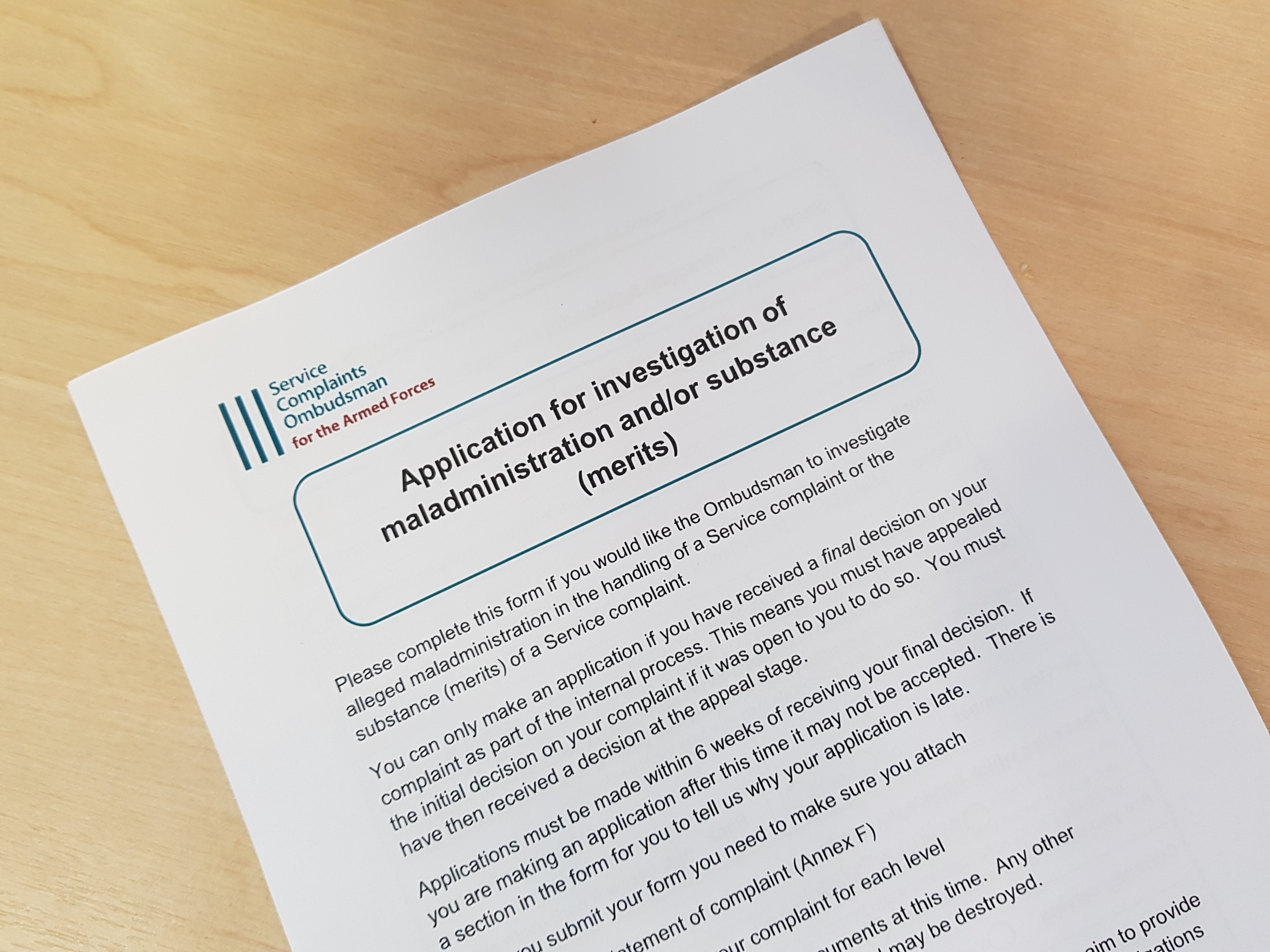Last month we asked our Twitter followers what issues they thought I should be blogging about. The responses all centered on the same theme – what happens if there are repercussions for making a Service complaint? This is a longstanding area of concern for myself and many members of the Armed Forces and their loved ones. In my blog this month I will be looking at this issue, including what you can do if you feel you have been unfairly treated as the result of making a complaint and the steps I have taken to tackle this issue.
Every member of the Armed Forces has the right to make a Service complaint if they believe they have been wronged in a matter concerning their Service life and there must be no repercussions for having done so. Despite this, many personnel feel that the reality of the Service complaints process is that making a complaint will have a negative impact on their career.
The results from Armed Forces Continuous Attitude Survey (AFCAS) 2017 demonstrate that while 71% of personnel feel they are treated fairly at work, 13% report experiencing discrimination, bullying or harassment. However, only 10% of those individuals report making a Service complaint about the treatment they experienced. The top three reasons given for not making a complaint were:
- Not believing anything would be done if a complaint was made (59%)
- Belief that it might adversely affect their career (52%)
- Worry about recriminations from the perpetrators (39%)

While AFCAS only looks at the reasons for not making a complaint about these particular issues, I am aware that many personnel feel that making a Service complaint about any issue will have a negative impact on how they are treated or their career. So, can personnel be treated unfairly or unfavourably for having made a complaint and what can they do if they feel that they have been?
Can personnel be treated unfairly or unfavourably because they have made a Service complaint?
No. The Service complaints process makes it clear that no one must be treated unfairly or unfavourably as a result of having made a complaint. If your complaint concerns discrimination then you have added legal protections as such unfair treatment is known as victimisation and the Equality Act 2010 makes it unlawful. This also extends to those individuals who have been treated unfavourably as a result of providing information that supports a complaint of discrimination.
What do you do if you believe you have been treated unfairly or unfavourably because you made a Service complaint?
If you feel you have been treated unfairly as the result of making a complaint, then that in itself is the basis for a complaint. If your Service complaint is ongoing you may not need to raise a separate complaint to have this issue dealt with, you could amend your existing complaint if you have not yet received an admissibility decision. If you have received an admissibility decision you will need to make a new complaint about the unfair treatment.
What can I do as Ombudsman to assist where people believe they have been treated unfairly or unfavourably for having made a Service complaint?
This is an issue that is treated very seriously by my office. Where such allegations form part of the substance of a complaint that is investigated under my powers then a determination can be made about whether an individual has been treated unfairly and recommendations made for redress.
However, the work that I do to address this is not just limited to the investigations undertaken by my office. As the Service Complaints Ombudsman for the Armed Forces it is my responsibility to monitor how the Service complaints process is working and making recommendations for change. That there remains a real or perceived view that making a Service complaint will have a negative impact on their career is clearly an issue that needs to be tackled and one that I know concerns the Service Chiefs as much as it does me.
I am working hard with the Services to try and change the way complaints are viewed in the Armed Forces. The origin of any complaint is that something has gone wrong, but that does not mean that complaints should be viewed negatively or that those raising a complaint should be labelled as “troublemakers”, in fact, it is the opposite. Bringing a complaint provides any organisation, including the Armed Forces, an opportunity to correct individual wrongs and to improve processes. While the Services have made great strides in this regard over the last ten years, the results of AFCAS show that there is still work to be done. This is not just an issue in the United Kingdom, it is an issue that faces a number of Ombuds Institutions throughout the world and will be a topic at the 9th International Conference of Ombuds Institutions for the Armed Forces next month.
Changing the culture around how complaints are viewed in the Armed Forces will only serve to reinforce that unfavourable treatment and victimisation for having made a complaint will not be tolerated. This is an issue that I have discussed at length with Service Chiefs and will continue to be on my agenda throughout my term as Ombudsman.
Correction: An earlier version of this blog did not make it clear that amendments to a complaint can only be made before an admissibility decision.